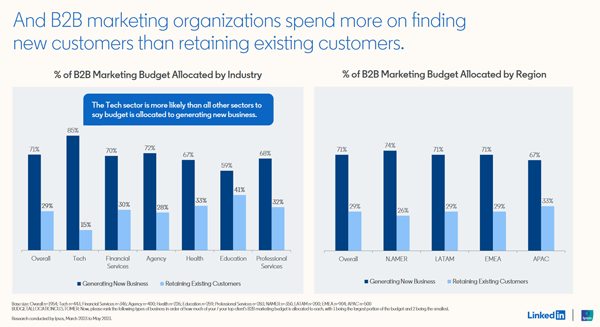Today’s Top B2B Inbound Marketing Challenges
By Harry Mackin
In 2023, B2B inbound marketing is more important than ever. While web traffic and email open rates across industries have both been in freefall, inbound leads rose by over 6%, and web-based conversions saw a nearly 11% increase.
Marketers across industries seem well aware that inbound marketing performs, as 88% of marketers already doing SEO work plan to increase or maintain their investment moving forward, and nine out of 10 marketers plan to increase their investment or continue using short-form videos as a major element of their ongoing strategy.
All this well-warranted buzz around inbound marketing has made the practice more competitive than ever.
If your B2B brand wants to rise above the noise, you’ll have to confront and overcome some serious challenges in the process. Let’s tackle them together:
1 — Economic downturn & pressure to prove ROI fast
Perhaps the most immediately pressing challenges facing B2B inbound marketers today relate to the tough market conditions resulting from the protracted economic downturn we’ve been facing for most of 2023.
According to Insider Intelligence, B2B sales growth is down 3.4% this year, while ad spend continues to rise at a growth rate of 9.3 percent. The result, as Sara Lebow wrote for Insider, is that “B2B companies are fighting over increasingly limited spend.”
B2B inbound marketers are likely feeling this crunch more than most. The most recent B2B Marketing Benchmark report from LinkedIn* showed that CMOs are under pressure to demonstrate marketing impact on the bottom line faster than ever.
Unfortunately, it’s easier to quickly prove the ROI of demand generation marketing than inbound marketing. This has been an infamous ongoing problem in B2B that has led to the dominance of performance marketing at the expense of brand building.
Solution: Redefining the ROI of inbound marketing
As the stats above demonstrate, the problem with B2B inbound marketing isn’t actually making the impact; it’s proving the impact has been made. B2B marketers are relying on performance metrics for their inbound marketing that undermine how big a difference their inbound is actually makes.
“The problem with B2B inbound marketing isn’t actually making the impact; it’s proving the impact has been made.” — Harry Mackin of @TopRank Marketing
Click To Tweet
New metrics for B2B inbound marketing success are needed. Many marketers are using brand performance metrics to understand the impact of upper-funnel and inbound efforts in the greater context of pipeline and revenue.
Armed with metrics like these, it’s much easier for inbound marketers to prove how essential their brand building is to long-term, sustained success – even in the midst of an economic downturn.
2 — The competition is fierce, and only growing fiercer
According to the 2023 B2B marketing mix report by SageFrog, nearly half of all B2B brands (49%) are actively implementing SEO inbound marketing as a major part of their marketing strategy. Another 43% are investing in content marketing and organic social …read more
Source:: Top Rank Blog








